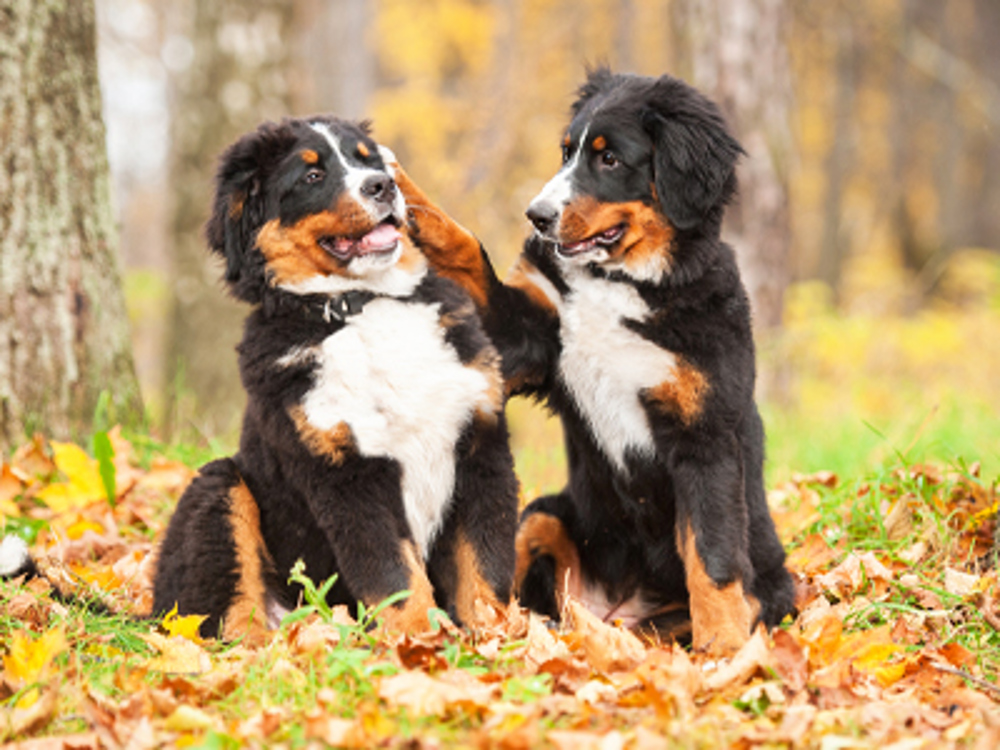
What does socialisation actually mean and how will it affect you as a new puppy owner?
We ask a huge amount from our dogs in their role as a companion animal, as not only do they need to understand humans and the human world, they also need to become fluent in the language of dog.
What does it involve?
Socialisation involves having pleasant social interactions with adults, children, vets, adult dogs and other animals, as well as careful exposure to different situations in the environment, like traffic, crowds, travelling in the car, vacuum cleaners and any sights and sounds your dog will have to cope with in life. It is so important that this is done thoroughly and correctly when your puppy is still young enough to happily accept new things.
Every single thing a puppy sees, hears, feels, smells and tastes, every meeting they have and every new thing they discover produces literally trillions of new brain connections in those first 16 weeks, and they will last for life. They are learning what things are a part of their new life and their new family, what is safe and who is in their social group.
Experience is everything
A puppy who is properly reared in their early weeks will be far more likely to grow up confident, calm, more open to learning new things, less likely to respond to new experiences fearfully or aggressively – in short, more likely to become a good family dog.
Up to the first 16 weeks of age, the puppy is also learning who is in their social group, who the people and animals are that form their family, who they are social and friendly with, who they play with and who they are building bonds with. You have to carry on this socialisation to teach your puppy about their new family and what their life with you is going to contain.
Our puppy socialisation tips
For more guidance on puppy socialisation, please refer to our useful step-by-step guide, produced jointly with Dogs Trust:
Puppy discipline
In order to become a good family pet, it is important that you teach your puppy to understand right from wrong. Everyone in the household should agree to a set of rules, which everyone must follow consistently.
Tips
- Discourage puppy actions such as jumping up, mouthing, play biting, stealing, chewing, barking, pawing, begging or mounting, which may be endearing when they are puppies, but will make them antisocial as adult dogs
- Take every opportunity to praise your puppy for good manners and divert them from undesirable behaviour, as this will reinforce the correct conduct
- Don't punish your puppy for things they have done when you have had your back turned, e.g. finding a hole in your garden after the incident has taken place
- If you do catch your puppy doing something they shouldn't, interrupt and then distract them with a toy or a game and then praise them when they are doing what you want them to be doing
Dog training classes
Every puppy needs to be taught good manners and have constructive lessons in basic control. This includes responding to their name, knowing how to greet and behave politely around people and dogs, coming back when called, walking nicely on the lead, sitting down and staying on command, and allowing themselves to be groomed and examined by you and your vet.
It is important to find a good dog training class to teach you how to stimulate your puppy, as well as show you methods to prevent and correct different types of actions. Learn more about The Kennel Club Good Citizen Dog Training Scheme.
It is vital that you are patient with your puppy. Don't expect too much too quickly, as all young animals need time to learn what we expect of them. Learn more about dog training.
Don't be afraid to ask for help
If you have any specific problems during this time, speak to your breeder or dog trainer - they will advise you how best to overcome them. Problems with puppies are usually easily solved, so ask for advice sooner rather than later. Problems can be harder to rectify in the long run if you don't correct them by training the desired behaviour.
